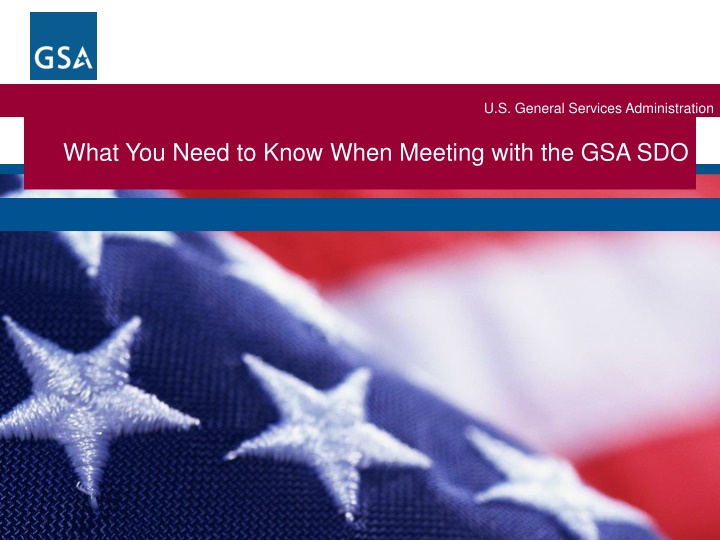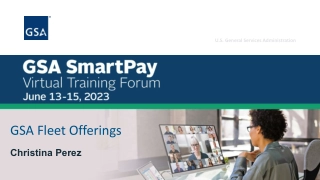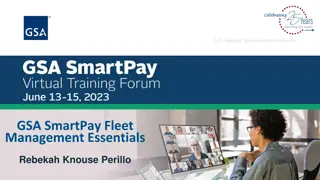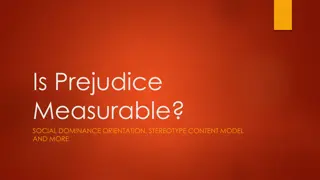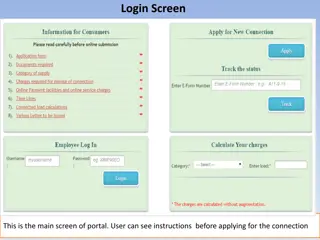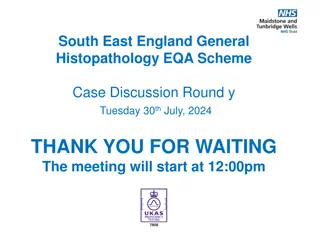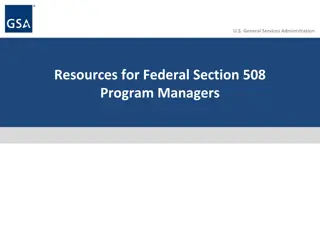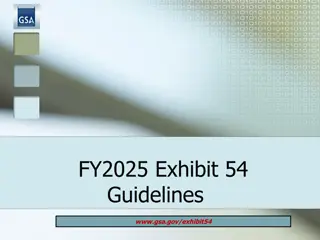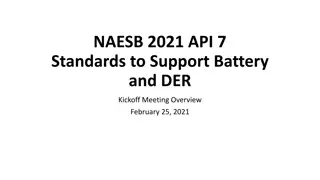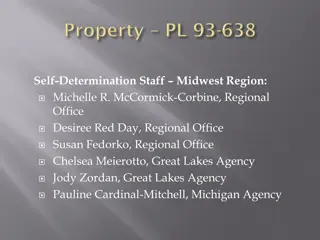What You Need to Know When Meeting with the GSA SDO
The GSA's Suspension & Debarment process, including voluntary disclosures, contractor responsibilities, and decision-making factors. Learn how to submit a voluntary disclosure, key components required, and why being a GSA schedule holder isn't enough for the lead agency role.
Download Presentation

Please find below an Image/Link to download the presentation.
The content on the website is provided AS IS for your information and personal use only. It may not be sold, licensed, or shared on other websites without obtaining consent from the author.If you encounter any issues during the download, it is possible that the publisher has removed the file from their server.
You are allowed to download the files provided on this website for personal or commercial use, subject to the condition that they are used lawfully. All files are the property of their respective owners.
The content on the website is provided AS IS for your information and personal use only. It may not be sold, licensed, or shared on other websites without obtaining consent from the author.
E N D
Presentation Transcript
U.S. General Services Administration What You Need to Know When Meeting with the GSA SDO
Overview of GSAs S&D Process U.S. General Services Administration Cases are referred to the SDO from many sources, including the Office of Inspector General, voluntary & mandatory disclosures GSA coordinates referrals and disclosures with the Interagency Suspension & Debarment Committee so that agencies have an opportunity to be involved with cases that may affect their missions One agency will be deemed the lead agency and will make the ultimate decision as to what action, if any, will be taken 6
Overview of GSAs S&D Process U.S. General Services Administration The SDO makes a decision based on the referral and Action Referral Memo from the S&D Division Contractors are immediately listed on SAM (www.sam.gov) if they are suspended or proposed for debarment and notified in writing When suspended or proposed for debarment, contractors may submit matters in opposition demonstrating their present responsibility If requested, SDO will meet with the contractor If additional facts are presented, the SDO makes a final decision which is provided to the contractor 6
Voluntary Disclosures U.S. General Services Administration Submit a voluntary disclosure to the S&D Division Deputy Director A phone call to the SDO is not a voluntary disclosure A voluntary disclosure must be made in writing 6
Voluntary Disclosures U.S. General Services Administration The disclosure must be a written submission, including: A description of the reason for the disclosure Justification of why you are disclosing to GSA rather than another agency Analysis of the nexus of the conduct at issue to GSA Analysis of the contractor s Federal Government contracts with at least the contractor s top three contracting agencies by dollar amount Supported by Federal Procurement Data System or USASpending.gov data 6
Voluntary Disclosures U.S. General Services Administration The fact that the contractor is a GSA schedule holder is not sufficient, without more, to support a determination that GSA should take the lead agency role GSA will review the submission and if appropriate, will coordinate with other agencies on who will take lead agency role 6
Reasons for Meeting with the SDO U.S. General Services Administration Voluntary or mandatory disclosures To present matters in opposition to a suspension or proposed debarment To provide information in response to a Request for Information or Show Cause Letter In response to the SDO s request for a meeting 12
Who Should Attend a Meeting with the SDO? U.S. General Services Administration Ineffective for only counsel to meet with SDO If the respondent is a company, senior leaders and managers with first-hand knowledge and/or the power to effectuate change should attend the meeting Examples of Who to Bring Head of company (CEO/President) Individual in charge of ethics and compliance (if applicable) Individuals in charge of Government business (if applicable) Other individuals as dictated by the situation/ corporate structure 13
Preparing for the Meeting is Vital U.S. General Services Administration If represented by counsel, preparation of the client prior to the meeting is the most important job of counsel The client should do most of the talking Think about the Government s perspective and seek to understand the SDO s specific concerns and address them Be sure to read whatever submission your counsel makes on your behalf. If you do not, it shows! 14
Written Materials/Documentation U.S. General Services Administration Submit written materials that address the misconduct and at the very least, FAR 9.4 s present responsibility factors Acknowledge past misconduct and but focus on present responsibility Submit at least three days before the meeting The SDO may request additional written submissions based on the meeting 15
The Meeting U.S. General Services Administration Demonstrate to the SDO that the contractor is presently responsible Do not get stuck on legalese Confront and address the cause for suspension or debarment Do not re-litigate the underlying cause Speak with candor and give the SDO transparency into the contractor s organization and the issue in question 16
The Meeting U.S. General Services Administration The SDO has discretion The present responsibility determination is in part subjective Meetings help to inform the SDO s discretionary decision 16
What is Present Responsibility? U.S. General Services Administration Focuses on the present and future ability of a contractor to operate responsibly and with honesty and integrity despite past misconduct Includes a contractor s ethics, integrity, compliance with applicable laws, and ability to adequately perform A determination that a contractor is presently responsible is an overall evaluation of the contractor itself, not of any particular act or omission Mitigating Factors in FAR 9.406-1(a)(1)-(10) used in present responsibility determination 17
Overview of Factors Considered for Present Responsibility U.S. General Services Administration Standards of Conduct Voluntary Disclosure Internal Investigation Full Cooperation Paid Costs/Restitution Disciplined Employee Agreed to Implement Remedial Actions Ethics Training Adequate amount of time passed Management Recognition of Problem 18
Administrative Agreements U.S. General Services Administration Considered When Contractor must have met burden of FAR 9.406-1 of demonstrating to SDO s satisfaction the contractor is substantially on the way to being presently responsible Administrative Burden On Government Tracking timely submissions On Contractor May require significant investment of resources Must be prepared to fulfill requirements Violation of terms is an independent cause for debarment 19
Corporate Monitors U.S. General Services Administration Considered when Entering into an Administrative Agreement and SDO would prefer an independent third party review Alleged misconduct is pervasive and ingrained in company culture Administrative Burden On Government Tracking timely submissions On Contractor May require significant investment of human and financial resources 20
Take-Aways U.S. General Services Administration The Contractor is the best teller of the story S&D is protection not punishment Engage in a conversation with the SDO early on ISDC: https://isdc.sites.usa.gov/debarring_officials/ Present Responsibility is key The SDO must determine whether the company/individual is presently responsible Focus on this in meetings and written submissions Strong ethics and compliance programs are very important Can help contractors avoid the S&D process 24
